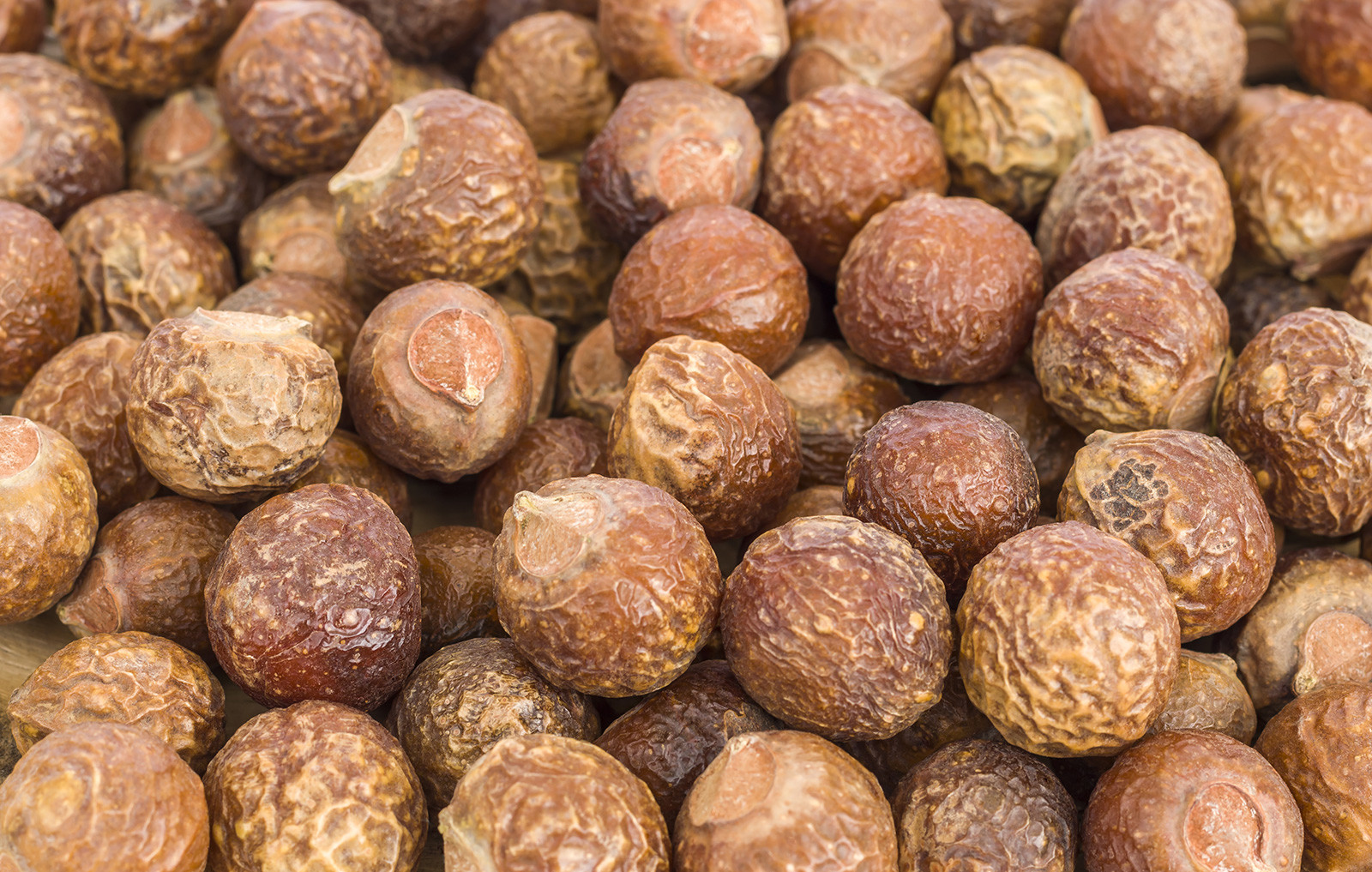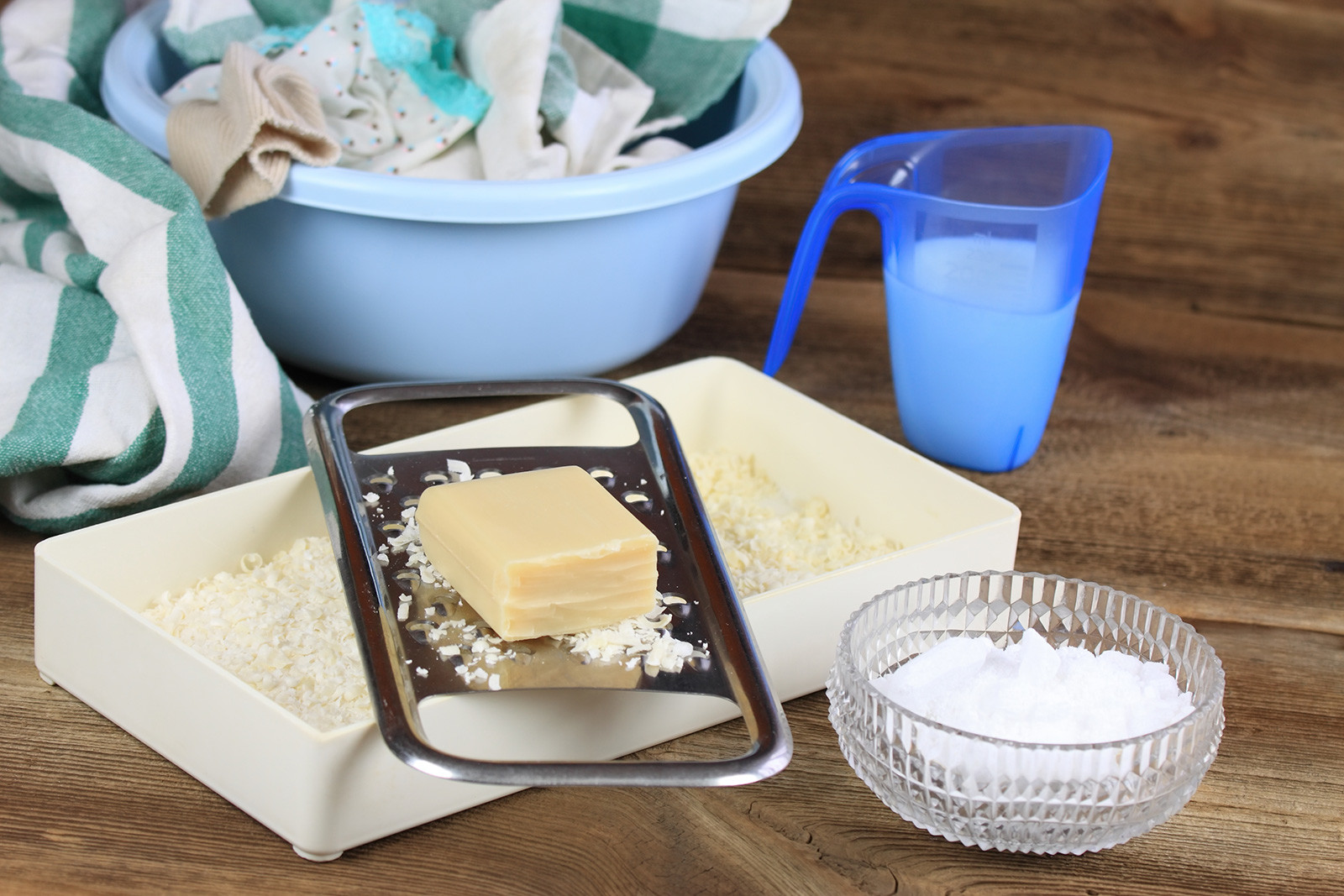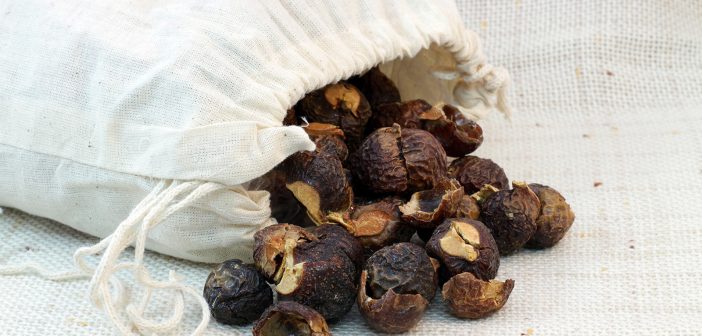For better or for worse, doing laundry is a standard part of life in the world we live in. But have you ever taken the time to think about the impact that your clean clothing has ON the world? It turns out that most commercial laundry detergents are pretty nasty – full of toxic chemicals and packaged in hard-to-dispose plastic containers.
Once you start to learn the facts about this simple household product, you might be ready to make some changes in your clothes-washing routine.
Health impacts of chemical detergents
There are an estimated 80,000 different chemicals that are used commercially in the United States today, and only a small percentage of those have been tested for toxicity. Rather, the Environmental Protection Agency (EPA) is so overwhelmed with the vast amount of new chemicals that are produced every year, that only chemicals that are considered “likely toxic” are rigorously tested. The majority of chemical creations are considered “safe until proven otherwise” by accepted industry standards. Unfortunately, that makes us consumers the guinea pigs, with unsettling consequences.
Commercial detergents are a chemical factory of artificial ingredients. Walk through the laundry aisle in a grocery store and you will be inundated with artificial floral and fruity smells produced by unpronounceable ingredients on the back of each durable plastic bottle. Look at these ingredients more carefully and you may notice the word ‘surfactant‘. Surfactants are responsible for the cleaning property of soaps and detergents, and they work by breaking the surface tension of water. This allows soap chemicals to be able to bind to dirt particles and then be washed away in the rinse cycle.
Don’t see the term? That’s hardly surprisingly, seeing as many commercial detergents are created to only be aesthetic enhancers. They might improve the smell and appearance of your clothing, but they don’t contain the necessary soap to get them truly clean.
To make things worse, the chemicals in commercial detergents aren’t something you are only exposed to on laundry day. Instead, you carry traces of these chemicals with you in your clothes everywhere you go. Breathing in these fumes, even in tiny amounts, can agitate your health by causing allergies, headaches and neurological problems.
You wouldn’t put toxic chemicals on your skin, so why wear them on your clothes? The skin is the largest organ in the body, and it is a permeable layer through which chemicals and toxins can pass through. Wearing these chemicals on your clothes is just asking for them to get into your bloodstream.
Environmental impacts of commercial detergents

Commercial detergents can be devastating to aquatic life.
The human health impacts of commercial detergents are bad enough, but the long term environmental impacts may be even more sinister. These same chemicals that can be damaging to humans can be devastating to aquatic life. Surfactants in detergents change the tension level of water and make it easier for fish to absorb pesticides and other harmful chemicals through their skin.
Phosphate has been commonly used in laundry detergent for decades in order to soften water and remove grease and dirt from clothes. When it inevitably drains into the water system, it causes significant damage to fish by “cleaning off” the external mucous layer that protects them from bacteria and parasites. Just a few parts per million of phosphate in water can reduce the effectiveness of breeding and even kill fish eggs. Phosphates in freshwater can also cause algae blooms that diminish oxygen levels in the water system, eventually causing widespread death to plants and fish. These chemical effects work their way up the food chain through biomagnification and can affect seabirds, larger fish, and even humans that eat contaminated fish.
In many ways, when it comes to detergents, the container is almost as damaging as the contents. The average American throws away 185 pounds of plastic EACH year. Much of the plastic of everyday life ends up in the ocean, no matter how properly you thought you disposed of it. Consequently, there are more than five trillion pieces of plastic floating in the oceans right now, and that number is only going to go up.
This plastic not only clogs up our water systems, but also acts as a choking hazard for many animals.
Besides, even when detergent bottles are properly disposed of in landfills, they still are bulky, chemical-laden plastics that will take tens of thousands of years to break down. Hardly an ideal situation.
Sustainable alternatives to commercial detergents
Clothes washing may not be optional, but there are products you can use to stay clean that don’t contain harsh chemicals or plastics that never disintegrate. Whether you choose to make your own soap or use an alternative product like soap nuts, you will be able to feel good about the way you are treating your clothes, your body, and the environment.
Soap nuts

Soap nuts are a completely different, yet highly effective way to wash your clothes. Coming from the Mukorossi tree, soap nuts are native to the Himalayas but can be grown in many arid climates around the world. Technically a berry, Mukorossi tree fruit contains a natural surfactant called saponin that can be used to agitate dirt off clothing, bind dirt particles to soap molecules, and wash them down the drain.
The incredible thing about soap nuts is how dead easy they are to use. Simply put five nuts in a drawstring bag (usually included when you order them) and toss it into the washing machine. They can stay in the machine through the rinse cycle and be taken out when you remove your clothes. No need for fabric softener or any other detergent, these nuts can do it all! Soap nuts are usually good for five to ten washes, so reuse them until they turn papery thin and transparent.
Not only are soap nuts easy to use, they are good for you and even better for the planet. Mukorossi trees are prolific producers, and the nuts can be sustainably harvested with few environmental repercussions. No artificial ingredients or scents means that the nuts won’t agitate your skin or cause you allergies, and most nuts are sold in biodegradable cardboard boxes rather than plastic bottles.
You can buy soap nuts online or at most health food stores.
Homemade laundry detergent

The best way to control exactly what goes into your detergent is to make it yourself. A simple, effective recipe is to mix three cups of Borax (found in the detergent aisle) with two cups each of washing soda, baking soda and grated, all natural soap. Use two tablespoons per load for a sustainable, low-suds detergent, and store the rest in an airtight container, in which it will keep for months, or as long as you will be using it.
Not only is this recipe easy, it’s cheap and costs you pennies per load compared to commercial detergents. Better yet, it is completely customizable and can take on the scent of whatever grated soap you choose to use.
If you want to make a detergent that doesn’t use borax, simply follow this recipe instead.
In summary
There has never been a better time to take control of your clothes by using a sustainable, all natural laundry detergent. Whether you choose to make your own detergent or experiment with soap nuts is up to you. In both cases, you will be benefiting both your body and the environment by reducing exposure to toxic chemicals and by keeping the ocean and landfills free of unnecessary plastics. So wash away!
